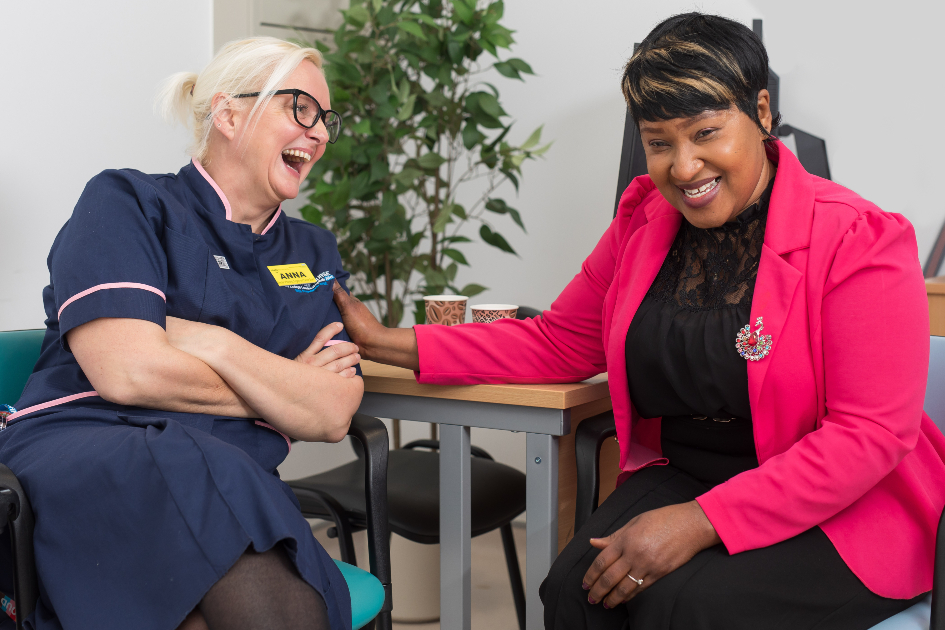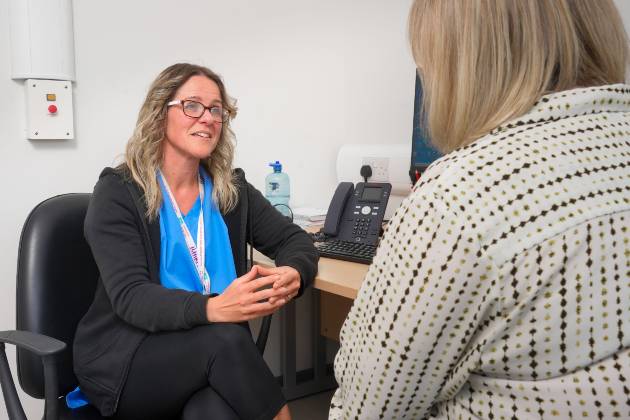RCN steward Patrick Simbule helped secure protected time for mandatory training enabling staff to develop their skills and improving patient care
When charge nurse Patrick Simbule first started working at BMI Healthcare’s Blackheath Hospital in south east London in 2017, there were no RCN reps in place.
“One of the other nurses told me that many of the issues staff were reporting could change if there was a workplace rep,” says Patrick. “They suggested that I take on the role, so I did. Having been a member of the RCN since 2001, it became apparent to me that I could really make a difference and make sure staff were getting fair treatment.”
One of the things that needed to be addressed was mandatory training. Staff were finding it hard to complete this due to a lack of time. Not only did it have an impact upon patient and staff safety, it also meant that some staff weren’t able to receive their annual pay rise, as completion of mandatory training is a requirement for this.
“Staff were being penalised for not being able to complete their training. It was affecting staff morale, which can lead to more staff absence and compromising care, so this was something I knew had to change,” says Patrick.
One of the most important things for me is to be able to connect with people
Starting the conversation
Another area of concern was that staff felt unable to take their breaks. Taking action to address this, Patrick hosted a Rest, Rehydrate and Refuel event as part of the RCN’s Healthy Workplace, Healthy You campaign. He invited all staff and managers and used it as an opportunity to address both issues.
“One of the most important things for me is to be able to connect with people,” says Patrick. “I knew that speaking to the management was important to get things changed and having an event within the hospital meant that it was easier to open up a conversation with them.”
The event highlighted the importance of breaks for staff and Patrick was also able to reiterate the importance of time out for staff to complete training.
I now see improved skills, which means better care. Staff seem happier and more compassionate too
Patrick says: “Following the event, managers agreed that we should give protected learning time for staff. This means they can take time out on a shift to complete training or access learning at home. It was put on the rota for all to see, so it was clear that staff were doing training.
“If it wasn’t on the rota, it wouldn’t get done, so it was important to have it scheduled in as part of work. Staff can also claim time back if they complete training outside of their working hours.”
As part of the agreement with management, Patrick was also able to ensure staff were taking their breaks. Since the changes, he has noted how staff morale has improved and patient complaints have gone down.
“Nursing staff were very stressed before, not taking their breaks and feeling that they didn’t have enough time to do their training,” says Patrick. “And although this past year has been tough with COVID-19 meaning fewer opportunities to speak personally with staff, I now see improved skills, which means better care. Staff seem happier and more compassionate too.”
Patrick's top tips for making a difference in your workplace
- Connect with members. “I make sure staff know I am contactable and there for them. I used to walk around the wards before COVID-19, but staff can still connect with me on the phone or through their managers who can then speak to me.”
- Hold regular surgeries. “Once a month I hold a walk-in surgery, so that staff can just come and talk to me and air any concerns. It’s a regular thing, so if staff feel they need to share something they can.”
- Share learning. “The Rest, Rehydrate and Refuel event was useful for me to get a conversation started. There are a lot of materials to use from the RCN so that staff feel they are being encouraged and valued.”
- Build relationships. “Building relationships with management has led to improvements. It can be as simple as saying hello to someone, but then that opens up the communication so that issues can be resolved more quickly.”
- Build your confidence. “Becoming a rep has increased my confidence. It’s about developing yourself, learning how to handle cases, and how to represent, collaborate with and signpost people to the right support. It’s about creating a positive change.”








